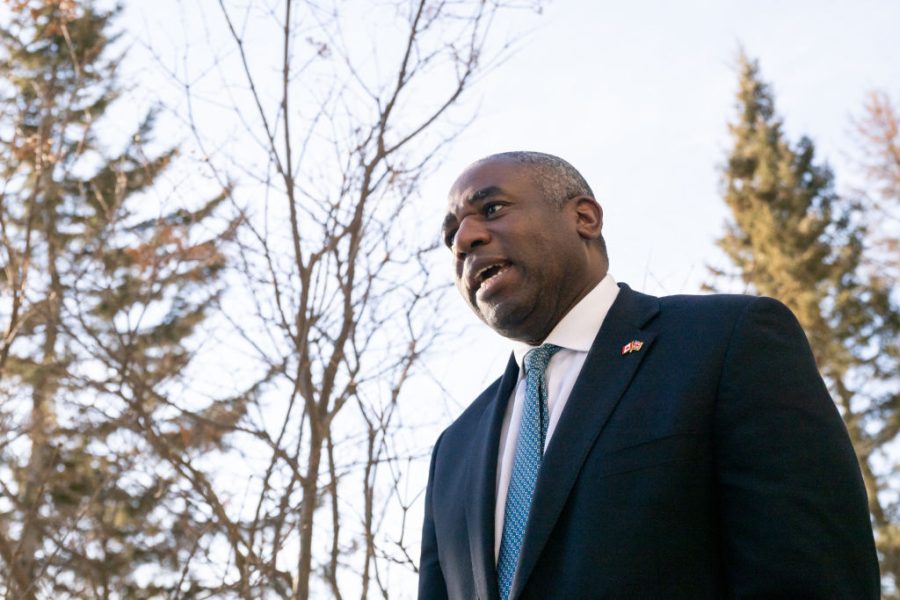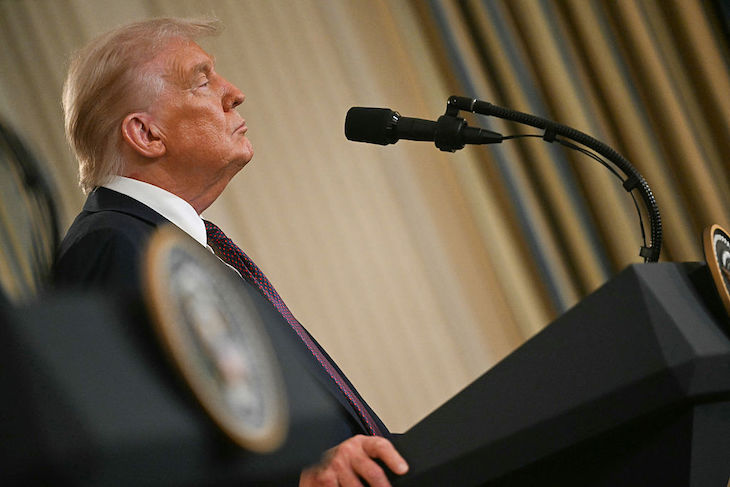As the world focused its attention on a possible peace deal between Russia and Ukraine, it might have been easy to forget that the fragile truce between Israel and Hamas did not mark an end to the crisis in the Middle East. This morning, that ceasefire looked near collapse with Israel ramping up pressure on Hamas and reportedly killing 300 people (including Hamas deputy interior minister, Mahmoud Abu Wafah) overnight.
In addition to the resumption of air strikes, Israel has also sought to use other tactics to compel Hamas to release the remaining hostages, including restricting the flow of aid into the territory and cutting off supplies of electricity. These moves are proving particularly contentious and have prompted the Foreign Secretary, David Lammy, to claim – for the first time – that Israel is breaching international law.
The conflict in the Middle East will be settled by power politics rather than international judges
In response to a question by Rupa Huq in parliament yesterday, Lammy said ‘it has now been 15 days since aid got into Gaza’, describing the situation as ‘unacceptable, hugely alarming and very worrying’. He indicated quite clearly that the actions of the Israeli government were in ‘breach of international law’ and urged Israel to restore deliveries of aid so that ‘Palestinians can get the necessary humanitarian support they need at this time’.
On the legal front, the Israeli government’s actions are potentially problematic. A blockade on aid would appear to be contrary to the provisional measures orders by the International Court of Justice (ICJ) in January 2024 (which mandated Israel to allow humanitarian assistance into Gaza). That court has yet to reach a conclusion on its long-running proceedings as to whether Israel is committing genocide in Gaza.
In addition, both Israeli Prime Minister Benjamin Netanyahu and his former defence minister Yoav Gallant remain subject to arrest warrants from the International Criminal Court (ICC). Despite a lack of clear jurisdiction given that Israel is not a party to the Rome statute which established the court, it accuses them of war crimes including ‘starvation as a method of warfare’.
Those who continue, in my view wrongly, to accuse Israel of genocide will no doubt argue that the current actions of the Israeli government risk deliberately inflicting on Palestinians in Gaza ‘conditions of life’ which are calculated to bring about their physical destruction contrary to the Genocide Convention. Such an argument neatly ignores the fact that the convention makes clear that genocide requires a specific intention to destroy the national group in question. Israel’s opponents rarely seem to care, though, about the details when they feel they have the moral high ground.
In spite of the legal entanglements, it is highly unlikely that the Israeli government will change course. It is also doubtful whether Lammy’s words will have much resonance in Israel, where the proceedings in the ICC and ICJ are perceived as both political and unfounded.
In February, Israeli foreign minister Gideon Sa’ar suggested that the international community had been misled that Palestinians were starving in Gaza. He observed:
The images don’t lie: Hamas terrorists and other Gaza residents look perfectly fine. The Israeli hostages look like Holocaust survivors and they are the only ones in the pictures who clearly appear to have suffered from starvation.
As Hamas terrorists grotesquely haggle over the return of dead bodies and stage monstrous (and likely illegal) hostage release ceremonies, the mood appears to have hardened. Against that background, the return of Donald Trump to the White House has clearly emboldened Netanyahu.
Some of Trump’s first steps were to approve nearly $3 billion (£2.3 billion) in arms sales to Israel and impose sanctions on the ICC, accusing it of abusing its power by ‘issuing baseless arrest warrants’ targeting Netanyahu and Gallant. In such circumstances, it is hardly surprising that Netanyahu has decided to try to finish the job of rooting out Hamas from Gaza once and for all.
These days, the British government has little leverage over Israel. Following the change of government in July last year, it is evident that relations have been frostier. The election of five pro-Gaza MP’s cannot have helped the situation and has clearly piled pressure on Labour.
Immediately following the election, Keir Starmer’s government decided not to pursue an objection to the ICC’s jurisdiction over the Israel-Gaza war. This was followed, in September last year, by the suspension of 30 arms export licences, after a review of Israel’s compliance with international humanitarian law. Neither of these actions will have improved links between the two nations.
Further restrictions on arms sales could be problematic, although in truth the UK is not a major arms supplier to Israel. However, a legal challenge over the supply of parts for F35 jets is likely to be heard in May and may cause further tensions. The jet parts were subject to a carve out from the arms embargo on the grounds that the British government argued that it was ‘not possible without having a significant effect on the global F35 fleet with serious implications for international peace and security’. Lammy’s comments may not have helped in this context.
The only other obvious avenue for pressure to be applied is in respect of the negotiations over a new UK-Israel trade deal. New free trade negotiations between Israel and the UK began in July 2022 and have continued despite the war in Gaza. The annual trade in goods and services between the two nations was estimated at £5.5 billion in 2024. Opponents of the war have previously argued that the UK should suspend talks on a new deal. But, given the current turbulence in world trade being caused by Trump, any such sanctions might well be seen as an exercise in self-harm.
For all the Labour government’s support for international law and its associated institutions, much like the Russia-Ukraine war, the current conflict in the Middle East will be settled by power politics rather than international judges. With Trump in the ascendancy, we should not expect to see the UK play a major role in these discussions: Lammy’s latest hand-wringing over Gaza is primarily for his domestic audience.







Comments